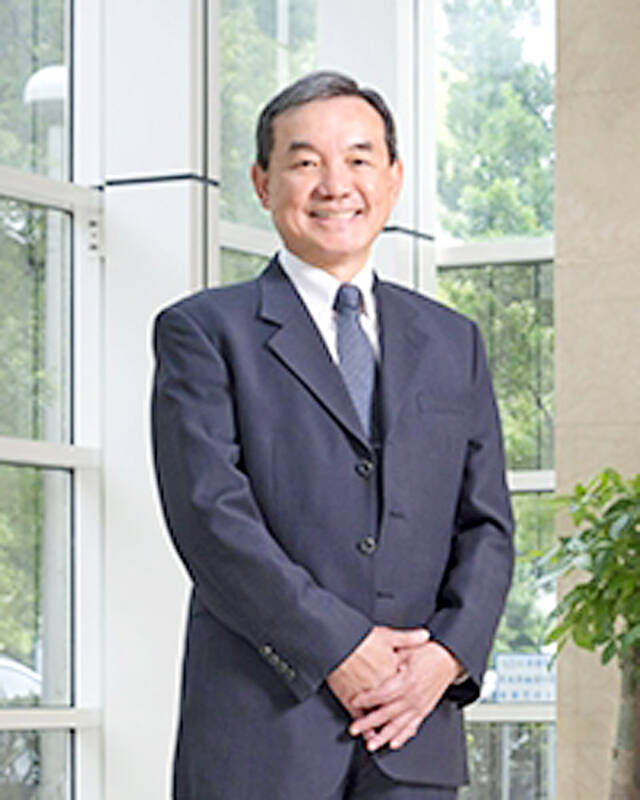Vanguard International Semiconductor Corp (世界先進) yesterday said it would push back its new capacity expansion plan by about two quarters as some customers are still burdened by inventories amid sluggish demand for power management chips used in handsets, servers and computers.
The Hsinchu-based contract chipmaker now expects overall capacity this year to grow about 6 or 7 percent, from its previous estimate of an 8 percent increase.
Vanguard said its Singaporean facility — Fab 5 — would be affected the most. The chipmaker originally planned to boost the fab’s monthly capacity to 15,000 8-inch equivalent wafers next quarter from the current 11,000 wafers. The expansion has been postponed to early next year.

Photo: Screen grab from Web site of Vanguard International Semiconductor Corp
Vanguard employs a different business model for Fab 5, with most customers signing long-term supply agreements and making prepayments to secure capacity at agreed prices and volume.
“In response to the semiconductor industry’s severe inventory correction due to macroeconomic factors, such as high inflation, interest rate hikes, war and geopolitical tensions, Vanguard will expand its capacity in a cautious and conservative manner,” company president John Wei (尉濟時) told an online investors’ conference yesterday.
“Some customers have increased demand for Vanguard’s wafers this quarter. However, demand from some other customers remain sluggish as they are still digesting inventory,” Wei said.
Order visibility is short at about three months, Wei said.
Overall, factory utilization this quarter is forecast to climb about 4 percentage points to 62 or 63 percent from 57 or 58 percent last quarter.
With improving demand from some customers for driver ICs used in TVs and smaller-sized panels, revenue this quarter is expected to increase between 15 percent and 19.66 percent to between NT$9.4 billion and NT$9.8 billion (US$305.7 million and US$318.7 million), compared with NT$8.19 billion in the first quarter.
Power management chips were the biggest revenue contributor last quarter, making up 69 percent of the company’s sales.
Driver ICs for large panels came next at 20 percent.
Gross margin this quarter would range between 29 percent and 31 percent, from 30 percent last quarter, as the average selling price is forecast to drop about 5 percent sequentially while manufacturing costs rise due to a 17 percent hike in electricity rates, Vanguard said.
“We expect most customers’ inventory digestion to peak in the second quarter,” Vanguard vice president Claire Chen (陳姿鈞) said, adding that TV and consumer electronics customers have seen a recovery in demand. “We are positive about the second half, but it remains to be seen how fast a recovery would be.”
The chipmaker yesterday reported its weakest quarterly net profit in about five years. After-tax income last quarter sank 66.7 percent year-on-year to NT$1.36 billion, the lowest since the first quarter of 2018. On a quarterly basis, net profit tumbled 25.9 percent from NT$2.48 billion.
Earnings per share dipped to NT$0.82 last quarter from NT$2.47 a year earlier and from NT$1.47 in the final quarter last year.

Intel Corp chief executive officer Lip-Bu Tan (陳立武) is expected to meet with Taiwanese suppliers next month in conjunction with the opening of the Computex Taipei trade show, supply chain sources said on Monday. The visit, the first for Tan to Taiwan since assuming his new post last month, would be aimed at enhancing Intel’s ties with suppliers in Taiwan as he attempts to help turn around the struggling US chipmaker, the sources said. Tan is to hold a banquet to celebrate Intel’s 40-year presence in Taiwan before Computex opens on May 20 and invite dozens of Taiwanese suppliers to exchange views

Application-specific integrated circuit designer Faraday Technology Corp (智原) yesterday said that although revenue this quarter would decline 30 percent from last quarter, it retained its full-year forecast of revenue growth of 100 percent. The company attributed the quarterly drop to a slowdown in customers’ production of chips using Faraday’s advanced packaging technology. The company is still confident about its revenue growth this year, given its strong “design-win” — or the projects it won to help customers design their chips, Faraday president Steve Wang (王國雍) told an online earnings conference. “The design-win this year is better than we expected. We believe we will win

Quanta Computer Inc (廣達) chairman Barry Lam (林百里) is expected to share his views about the artificial intelligence (AI) industry’s prospects during his speech at the company’s 37th anniversary ceremony, as AI servers have become a new growth engine for the equipment manufacturing service provider. Lam’s speech is much anticipated, as Quanta has risen as one of the world’s major AI server suppliers. The company reported a 30 percent year-on-year growth in consolidated revenue to NT$1.41 trillion (US$43.35 billion) last year, thanks to fast-growing demand for servers, especially those with AI capabilities. The company told investors in November last year that

Power supply and electronic components maker Delta Electronics Inc (台達電) yesterday said it plans to ship its new 1 megawatt charging systems for electric trucks and buses in the first half of next year at the earliest. The new charging piles, which deliver up to 1 megawatt of charging power, are designed for heavy-duty electric vehicles, and support a maximum current of 1,500 amperes and output of 1,250 volts, Delta said in a news release. “If everything goes smoothly, we could begin shipping those new charging systems as early as in the first half of next year,” a company official said. The new